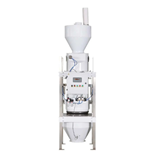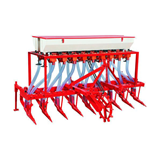That's the message of a new book by eminent world authority on agroforestry, Roger Leakey, vice-chairman of the International Tree Foundation and former Director of Research at the International Centre for Research in Agroforestry (ICRAF).
In Living with the Trees of Life – Towards the Transformation of Tropical Agriculture Leakey puts forward a bold new concept for food production which, he argues, has a far better chance of success than the current approach to agricultural intensification taking place in Africa, Asia and Latin America. Currently, deforestation and the associated loss of biological diversity are leading to a downward spiral of land degradation and social deprivation.
"The growing shortage of productive land for agriculture is a serious constraint on food production in the world's most populous regions and heightens the poverty of hundreds of millions of smallholder farmers in the tropics."
Leakey says: "We need a fresh approach both to food production and the use of natural resources if we are to avoid the emerging food crises expected to impact every country in the world by the middle of this century. We need to rehabilitate degraded land, diversify farming systems and protect watersheds."
In Living with the Trees of Life he describes a tried, tested and Equator Prize-winning three-point action plan as a way to bolster food and nutritional security in the world's poorest regions. His fresh approach involves harnessing the ecological power of trees producing marketable products to enrich, stabilise and intensify local farming systems. Leakey urges a 'new wave' of crop domestication from valuable tropical tree species producing nutritious and culturally-important foods, medicines, as well as the other day-to-day needs of local people.
To ensure that the livelihood benefits remain with the participating communities the activities are done in partnership within local farmers. This empowers local people to lift themselves out of poverty and creates new business and livelihood opportunities. These benefits provide an incentive to practice the more sustainable and diversified agriculture delivered by agroforestry.
"The range of potential innovations is enormous," he says.
"Few people realize the vast untapped wealth of the genetic variation that is present in trees. The development of tree crops can create local business opportunities and employment. In some cases there is the potential to support a whole range of new industries – this time however, poor people in developing countries must benefit."
By bringing all these elements together, the cultivation of trees with crops and livestock can tackle many of the world's most intractable problems – from climate change to landscape degradation; from hunger to poverty, and from malnutrition to social inequity. For those of us not lucky enough to see this for ourselves, Leakey shares the insights he has gained over a career working with trees around the world.
Leakey concludes "agroforestry is not an alternative to current agricultural systems, but rather a way to correct some of the mistakes and to build on the great progress that has been made over the last 60 years in crop and livestock breeding. In this way it will increase the returns on this huge international investment".
"Agroforestry is a middle path combining elements of biotechnology with rigorous attention to soil fertility management and crop husbandry. It diversifies and intensifies a low-input production system with new crops that are beneficial economically, as well as ecologically."
"The Convenient Truth behind all this is that we already know how to do all this," he says.
"The challenge is to scale up so that billions of poor people benefit."















